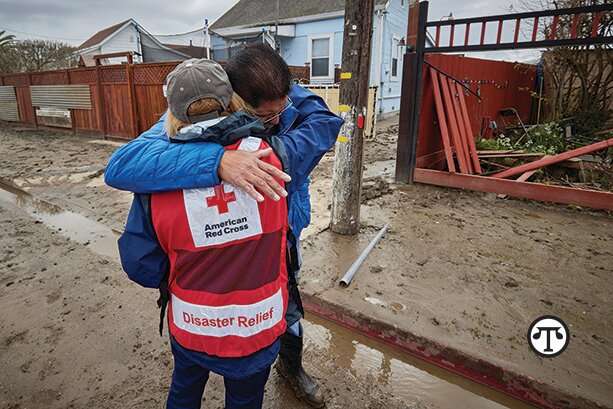FOR YOUR HEALTH: How The Climate Crisis Affects You — And What You Can Do About It
(NAPSI)—Families across the country cope with the effects of the climate crisis as extreme storms, wildfires, heat and floods grow in frequency and intensity. In fact, one of the nation’s leaders in disaster relief, the American Red Cross, now responds to nearly twice as many large disasters across the country as it did a decade ago.
National Preparedness Month in September is an important reminder to help your family and pets stay safe by taking action now with three simple steps: Get a kit, make a plan and be informed.
Get a Kit
Build your emergency kit with a gallon of water per person, per day; non-perishable food; a flashlight; and a battery-powered radio. Also include a first aid kit, medications, supplies for infants or pets, a multi-purpose tool and personal hygiene items. Don’t forget to add copies of important papers, cell phone chargers, blankets, maps of the area and emergency contact information.
Make a Plan
Plan what to do in case you are separated from your family during an emergency and need to evacuate. Make sure to coordinate your plan with your child’s school, your work and your community’s emergency plans.
Be Informed
Find out what disasters or emergency situations may occur where you live, work and go to school; how officials will contact you during a disaster; and how you will get important information, such as evacuation orders.
Depending on your household’s needs, you may have additional considerations as part of your emergency planning. Visit redcross.org/prepare for more information and tips.
How to Help Others
The increase in large disaster responses also means that more people need help across the country. As a part of this, the Red Cross is calling for new volunteers to help grow its disaster workforce—90% comprised of trained volunteers—to deliver shelter, food, health and mental health support, and one-on-one recovery assistance. Learn more and become a volunteer at redcross.org/VolunteerToday.
Weather Affects the National Blood Supply
Blood and platelet donations that go uncollected due to climate-related events, such as hurricanes, wildfires and extreme heat, can put further strain on the national blood supply. As extreme weather events are worsening, the Red Cross—which provides about 40% of the nation’s blood supply—is seeing that translate into more blood drive cancellations. In 2022, over 1,300 blood drives were canceled due to weather—about 23% higher than the average of the prior nine years.
Fewer donors than needed have given blood this summer, drawing down the national blood supply and reducing distributions of some of the most needed blood types to hospitals.
People depend on the generosity of blood donors. To ensure the nation’s blood supply is prepared for all emergencies, the Red Cross urges individuals to schedule an appointment to donate today using the Red Cross Blood Donor App, by visiting RedCrossBlood.org or by calling 1-800-RED-CROSS (1-800-733-2767). If you are unable to give blood, you can volunteer to support blood collections at redcross.org/VolunteerToday.
Responsible journalism is hard work!
It is also expensive!
If you enjoy reading The Town Line and the good news we bring you each week, would you consider a donation to help us continue the work we’re doing?
The Town Line is a 501(c)(3) nonprofit private foundation, and all donations are tax deductible under the Internal Revenue Service code.
To help, please visit our online donation page or mail a check payable to The Town Line, PO Box 89, South China, ME 04358. Your contribution is appreciated!



Leave a Reply
Want to join the discussion?Feel free to contribute!